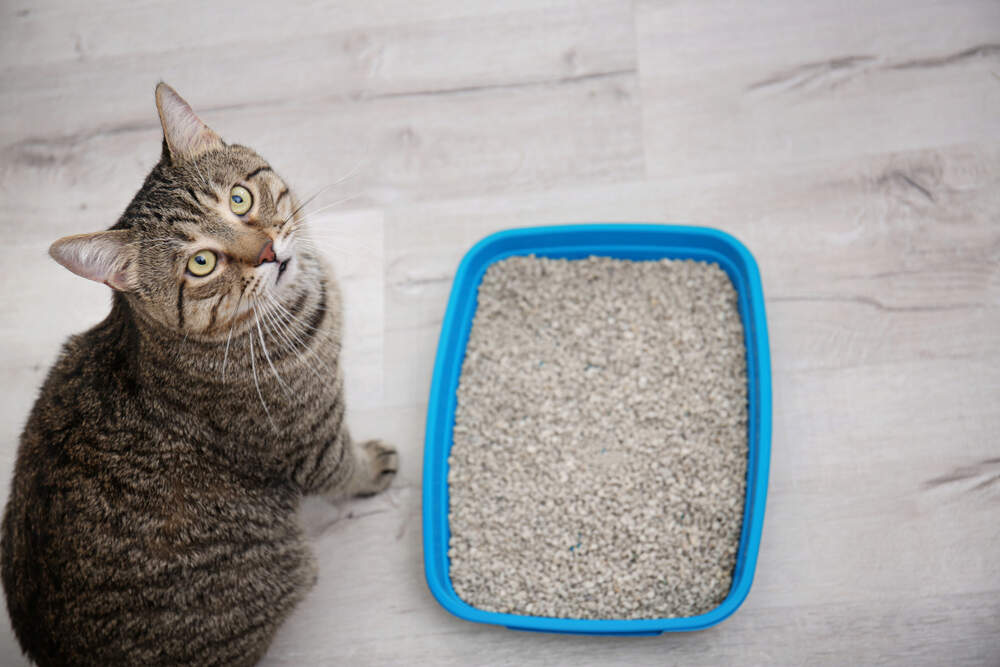How Can I Earn My Cat's Love?
There is nothing quite like the bond of love between a cat and his owner. With some cats, you have to earn their affection. So how can you develop a bond where you truly feel your cat's love? How can you help a shy cat learn to cuddle more and stress less, helping his emotional health? Rest assured, earning your cat's love isn't as hard as you might think. Although some cats are more expressive about their feelings than others, you can still help draw a cat out of his shell with these simple techniques.
1. Let Your Cat Approach You
Cats like to feel in control. So don't chase a skittish cat around the house, trying to get her to love on you. Instead, sit back and wait for her to make the first move.1 Don't look directly at your cat or pay a lot of attention to her while she's sitting across the room. Instead, get involved in something else entirely, like watching TV, reading a book, or texting someone on your phone. When she's not the center of your focus, she's more likely to initiate and come to you. When she finally does come around, act calm and happy. Don't get overly excited; this might make your cat run away from you again.
2. Teach Your Cat That Good Things Come From You
If your cat is food-motivated, you can use treats to help teach him that good things come unexpectedly from you. Carry some tasty cat treats in your pocket or keep some treats in a sealed dish on your desk or nightstand. Every now and then, surprise your cat with a little treat. Your cat may learn to start spending time around you more often because he never knows when you'll surprise him with something fun and tasty.
Of course, don't overdo the treats. You want to find other fun ways to "surprise" him too, whether it's with a little catnip or a mouse toy you keep with you.
3. Handle Your Cat Frequently When She's a Kitten
If you adopt your cat when she's a kitten, you can train her to be more comfortable with being handled. Pet her gently often and play with her frequently. Hold her paws, so she's comfortable getting her nails trimmed when she's a little older. Play games with her and invite your friends over so she can grow more at ease with human interaction.
4. Communicate in Your Cat's Language
Another key to getting your cat to like you more is to communicate with him in his language. When your cat looks at you, look him right in the eyes and blink slowly. This communicates that you feel safe and comfortable with him. When he's near you, don't surprise him with a quick pet. Instead, extend your hand near his face and let him sniff it first. If your scent and actions are acceptable, he'll rub his head against your hand or touch your hand with his nose. This is how you know it's okay to pet him gently.
Pay attention to his body language. If he starts twitching his tail or narrowing his ears, this is a sign to pull back. The more you respect his body language, the more likely he will approach you for pets in the future.
You might also notice your cat eventually develops a way of letting you know when he wants to be petted or played with. Perhaps he sits quietly beside you when he wants a pet. Or he may even develop a very specific cadence of meows that indicates he wants to play. The more you respond to these, the more you'll develop a "language" that is just for the two of you.
5. Pay Attention to Where Your Cat Likes to be Petted
It's important to pay attention to where your cat likes being petted and where she doesn't. Some cats love to be scratched under their chins and behind their ears. Most cats don't like being petted on the belly or legs, although there are exceptions—some cats like being petted on their backs at the base of their tails. Notice when your cat leans in to a pet and when she moves away. Then focus on gently petting your cat in her favorite spots.
6. Create a Safe and Happy Environment
When it comes to cats' well-being, you might often think of their physical health. But emotional health is just as important and can make a big difference in whether your cat feels safe and happy or nervous and skittish around you. Comfort Zone products are dedicated to helping cats feel safe, happy, and calm using signals cats understand. Comfort Zone drug-free calming solutions are effective in and around the home and on the go, with a wide range of products proven to help support your pet's emotional well-being.
Try putting a Comfort Zone Calming Diffuser in each room where your cat spends a lot of time. This calming solution releases a drug-free, odorless vapor that mimics a cat's natural pheromones. Or, you could snap a Comfort Zone Calming Collar around his neck, so he feels safe and calm wherever he goes.
You should also make sure your cat has everything else he needs to feel safe and happy. This includes things to scratch, things to climb, quiet areas for retreating when he feels overwhelmed, and soft places to snuggle down.
7. Play with Your Cat a Lot
You can form a bond with your cat by playing with her. Try games that cater to her instincts, like getting her to chase a feather wand or using a red laser toy for her to pounce and chase. Give her a treat after each play session, so she has "prey" to eat. Clicker training is another type of "play" that really engages your cat's mind.
Sometimes a cat may scratch or hiss at you. In those situations, you may find yourself wondering, "How do I get my cat to like me when she seems to hate me?" Rest assured, your cat doesn't hate you. Often, a cat acts out because she has too much energy or feels intimidated. Extra play sessions that wear her out can help.
8. Create Traditions and Rituals
Your cat will develop a deeper sense of his place in this world when you have daily traditions. This is a great way to remind your cat the two of you are connected and part of a pack. Try giving your cat smells of the outdoors by cracking open a window at the same time every morning, or play a game just before bedtime. Take your cat to his cat-run at sundown, or keep your cat in a room with you for an hour while you work, away from other pets and noises. Whatever your tradition is, be consistent and develop a schedule your cat can learn and anticipate.
Earning a cat's love is all about nurturing the bond between the two of you. Pay attention to your cat's language, pet him where he likes to be petted, and develop special rituals that cater to his e-meow-tional health. Remember, the more quality time you spend with your cat, the deeper your bond will grow.
1. Douglas, Nick. "How to Get a Cat to Like You." LifeHacker. 19 February 2020, https://lifehacker.com/how-to-get-a-cat-to-like-you-1828501761.






